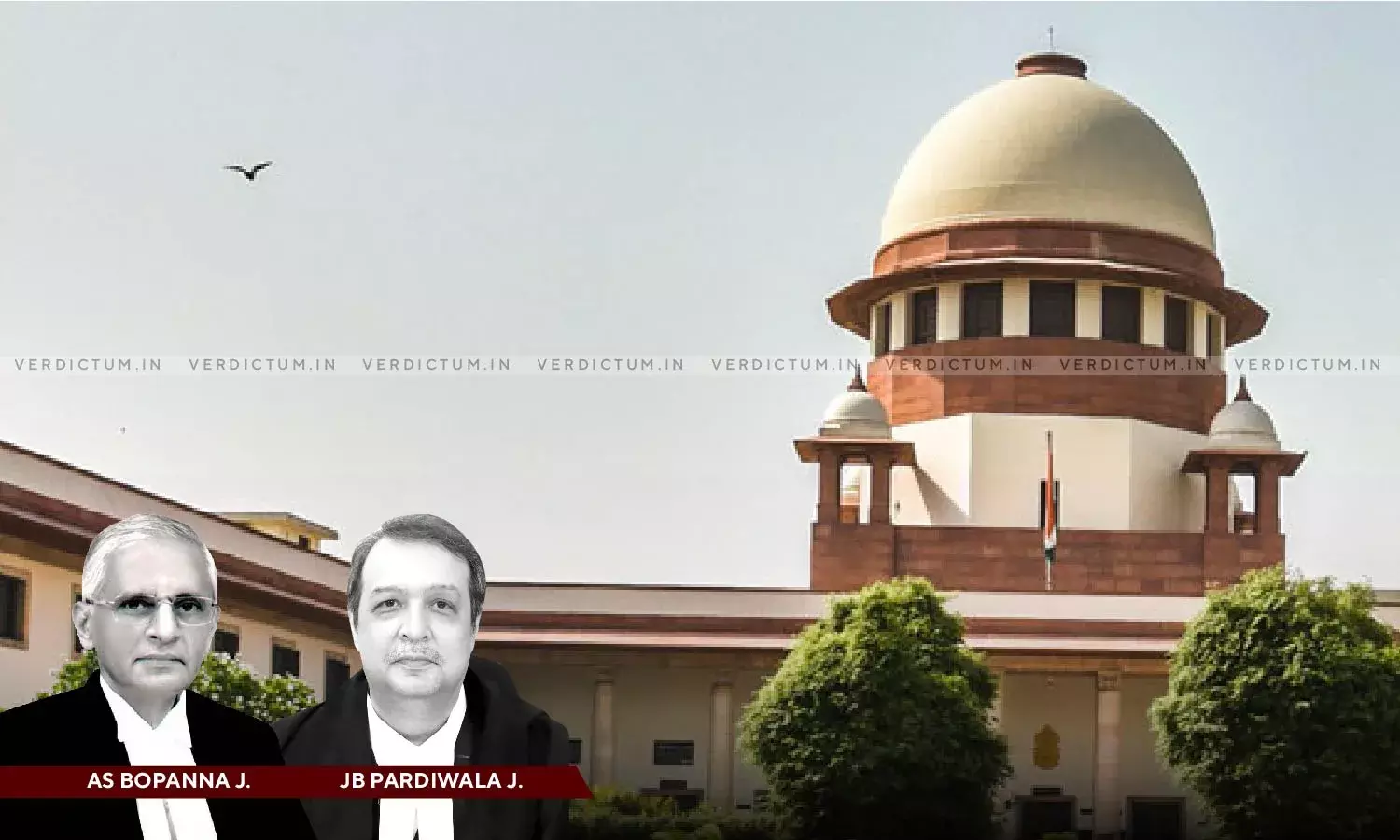Hindu Succession Act | Daughters Are Entitled To One-Third Of Properties Of Their Father- SC Reiterates

A Supreme Court Bench of Justice AS Bopanna and Justice JB Pardiwala has reiterated that under the Hindu Succession Act, daughters are entitled to an equal share in all the properties of their father. In light of the same, the Court held that the Plaintiff was entitled to 1/3rd of share in all the properties of her Late father.
Senior Counsel R Basant appeared for the appellants, while Counsel V Chitambaresh and Counsel B Sunita Rao appeared for the respondents.
In this case, the litigation related to the partition of ancestral properties between the appellants and the respondents.
The Supreme Court deemed it appropriate to analyse the position of Hindu Law and the subsequent position taken by the Hindu Succession Amendment Act 2005. The Court also analysed the dictum laid down by the Apex Court in Vineeta Sharma v. Rakesh Sharma and Others.
In the Vineeta Sharma case, daughters were recognised and treated as a coparcener by birth, with equal rights and liabilities as of that of a son.
On hearing the parties, the Courts formed the following issues and answered them in the following manner.
(i) In what manner, the rights of the parties would be governed keeping in mind the dictum as laid by this Court in its decision in the case of Vineeta Sharma?
The Court affirmed that in light of the background, daughters are entitled to 1/3rd share in all the properties as scheduled in the plaint. It was further noted that "by virtue of the preliminary decree passed by the Trial Court, which was confirmed by the Division Bench of the High Court, the issues decided therein will be deemed to have become final but as the partition suit is required to be decided in stages, the same can be regarded as fully and completely decided only when the final decree is passed. As the law governing the parties has been amended before the conclusion of the final decree proceedings, the party benefitted by such amendment (like the two daughters in the case on hand) can make a request to the Trial Court to take cognizance of the Amendment and give effect to the same."
In light of the same, the Court held that "no error not to speak of any error of law could be said to have been committed upon Courts below, while determining the shares of the parties. The only thing that needs to be done now is to give effect to the amendment in the provisions of Section 6 of the 1956 Act and redetermine the shares of the parties accordingly. To put it straight, the Plaintiff is entitled to 1/3rd share in all the properties of her Late father. The issue whether all the properties were ancestral as raised on behalf of the Appellants pale into insignificance."
(ii) Whether the High Court was justified in declaring the settlement between the appellants and respondents as invalid?
In response, the Court observed that it was in complete agreement with the aforesaid findings recorded by the High Court in its impugned judgment and order while allowing the cross-appeal. In light of the same, the Court observed that "the plaintiff has not put her signature on the deed of settlement, which was produced before the High Court in first appeal. The Plaintiff has made herself very clear that she never joined in the settlement between her brother i.e., the Defendant No. 1 and her sister i.e., the Defendant No. 2. On this ground alone, the settlement could be said to be unlawful, being without any written consent of all the parties. In a suit for partition of joint property, a decree by consent amongst some only of the parties cannot be maintained."
It was further observed that "It is an imperative duty of the Court to ascertain the genuineness and lawfulness of the compromise deed. Indisputably, in the case on hand, the First Appellate Court had neither recorded the statements of the parties in the Court nor had made any inquiry into the terms of the settlement. It is in such circumstances that the High Court in its impugned order has observed that the Compromise Petition was signed by the advocate without any express authority or without special vakalatnama executed in favour of the advocate. In fact, the authority was expressly curtailed in the compromise deed."
Subsequently, both appeals failed and were dismissed. No orders were passed as to costs.
Cause Title: Prasanta Kumar Sahoo & Ors. v. Charulata Sahu & Ors.
Click here to read/download the Judgment

